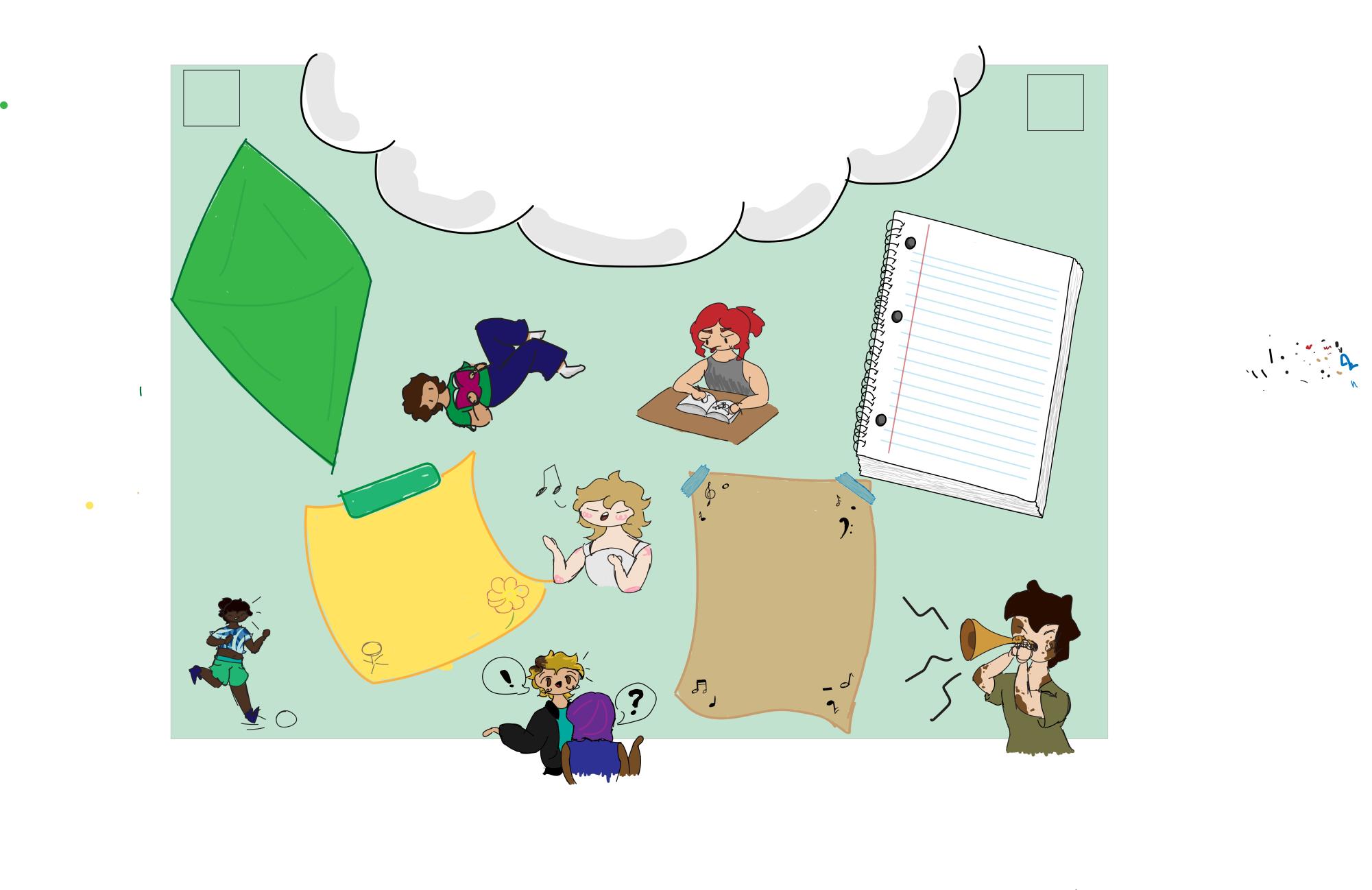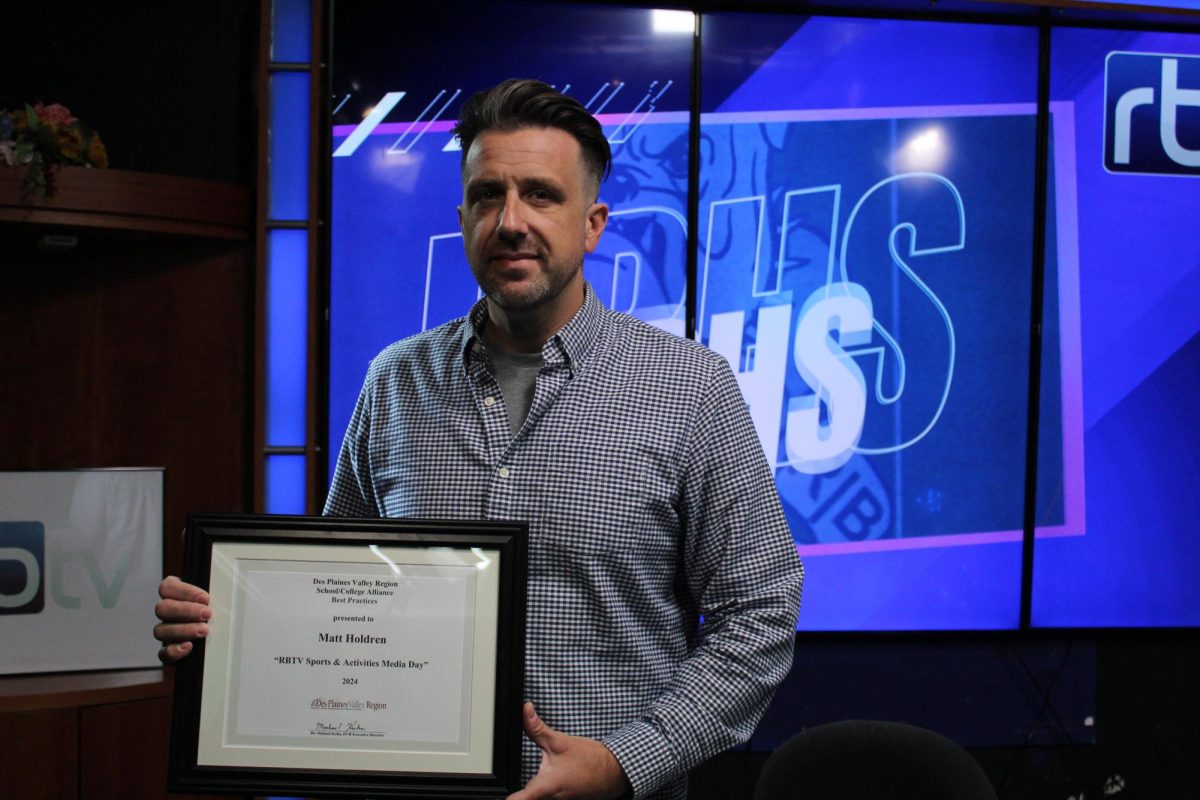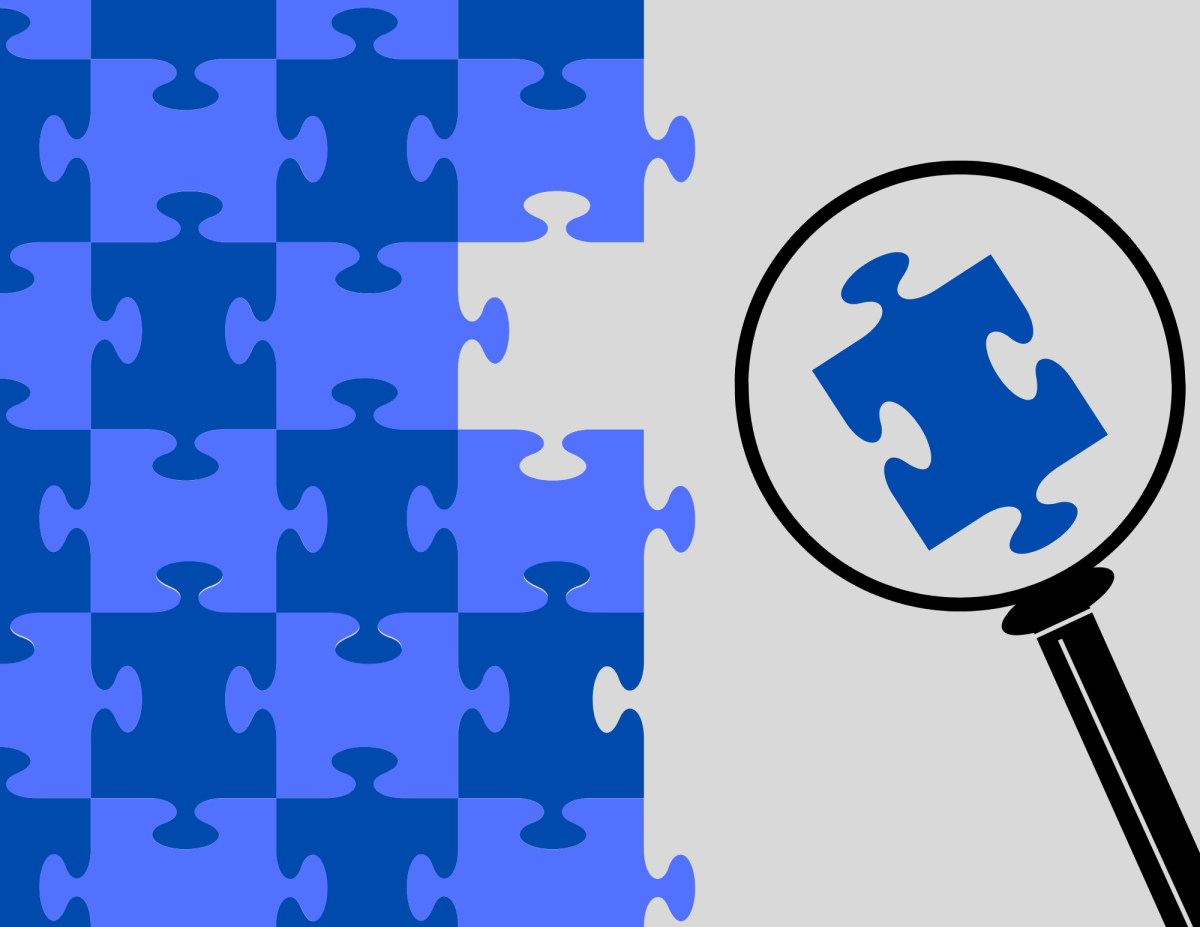Have you ever wanted to be God? Have total control and power over all things? Well for us, “The Sims 4” gives us all that and more. “The Sims” is a life simulation franchise that gives players almost total control over characters and their environment. Over the years, there have been three previous versions of the game. “The Sims 4” is the most recent version that was released in 2014.
For the “Sims 4” there are usually two main ways that people play: for gameplay or for building. Gameplay follows the actual Sims characters themselves and allows you to play their life, get a job, have a family, own businesses, and even have pets. However, building in “The Sims” is usually about architecture and interior design because you virtually have total control to build houses and apartments, and then place furniture within those homes.
Now while we personally differ on how we play the game, the reason why we both play is the same: creativity and escapism. Senior year can be chaotic, overwhelming, and mentally draining at times. But by playing “The Sims 4,” we can live a life that doesn’t revolve around our own future, and we can leave whatever responsibilities we have for a little while.
However, the downside is that the only way to get more customization and add-ons is through buying either kits, expansion packs, stuff packs, or game packs. When we were younger, the fewer packs available meant that buying a pack was a special occasion, especially because the sales usually came during holidays. Now, “The Sims 4” is constantly releasing new content, with better programming and more regular sales. All of this can certainly add up, but personally we think it’s worth it.
“The Sims 4” gives you the opportunity to be who you want to be, while letting you escape from reality and have fun in a creative setting.
How Chloe Utilizes Journaling:
Writing has always been an outlet for me, whether I am writing during a class, for the Clarion, or just writing for fun. All throughout grade school, my mom would have my sister and I write a paragraph a day about whatever we wanted during the summer. The main purpose was to keep our brains up to par so that we wouldn’t come back to school forgetting everything and have to restart because of the long break. Most times, I would write about what we were going to do that day or fun things I was looking forward to. Sometimes, though, I would write about other things like a recent annoyance with my older sister or maybe a newly acquired scrape on my knee from falling off my bike. I started receiving little notebooks and journals for birthdays and holidays. I would write in them for a few weeks, but then get out of the routine of writing in them once, which would result in storing them in a drawer to be forgotten for a while. Flash forward to my first semester of sophomore year: I took Mind and Body for my gym class, and I loved it. Each day was a new activity, and Fridays were always journaling, meditation, and yoga days. Sophomore year is very different compared to freshman year; classes are harder, more pressure is put on you, and a lot of change happens overall. Journaling every Friday was like an outlet for me to let out all of the week’s stress and completely let go. Even after my semester of the class was over, I kept up with it because of the freeing feeling I felt after each page of writing. It provides a source to let out every feeling—happy, sad, bad, or good. I strongly believe that everybody should try to journal at least once in their life. It has been so beneficial for me, and I hope it is for others too.
How Izzie Utilizes Journaling:
Growing up, my dad journaled all the time. He started when he was a teenager, and it is a stress-relieving habit he has carried with him throughout the years. I always admired him for how well he was able to write stories, songs, and really anything. I have always loved to write, too, but didn’t really get into journaling until this year. Whenever I used to try to journal, it always felt more like a chore than it did an actual stress reliever. I think the reason it felt this way was because I felt as if I wanted to worry less, I needed to write every single day and write about everything that happened that day. I realized this year that journaling in that way isn’t beneficial to me, but journaling in many other ways is, such as writing a list of events I am excited for, a specific situation that made me sad, angry, stress, etc., lyrics to a song I like, or even drawing a picture. Really just anything that is important to me or any thought that is on my mind that I can just quickly write down is helpful. Another thing that I love about journaling is that I can spend 30 seconds or 30 minutes writing. I can also write multiple times a day or not write for a month. It is not limited to a specific day or time or topic. It is what is helpful to you specifically, and I think that is one of my favorite things about journaling.
From my earliest days, I’ve been captivated by the marriage of colors, textures, and fonts, a fascination nurtured by my mother—a fashion designer who sees paper as the cornerstone of her craft. Through her teachings, I’ve learned to channel her creative vision into my own work by finding inspiration in her moodboards. Through her influence, I was exposed to the enchanting realm of scrapbooking where the possibilities are truly endless. With each snip of paper and placement of images, I’m granted the opportunity to weave together a tapestry of ideas, quotes, and memories, crafting something truly unique with every page of my navy blue journal. While I do hope to pursue a career in the crossroads of technology, I’m drawn to the tangible nature of scrapbooking, and I love the opportunity to dabble with my artistic side. Despite the rise of digital tools in this Internet era, I genuinely believe that there’s a magic in the tactile experience of traditional scrapbooking. The act of cutting, tearing, and arranging paper creates a sense of connection and authenticity that simply can’t be replicated on a screen. Especially on the weekends, I follow where my visions take me in between the press of the pages and paper. I find joy in exploring the possibilities offered at the hands of scrapbooking. As layers of paper, stickers, and washi tape overlap and then converge, each with its own distinct personality, I’m reminded that beauty can emerge from even the most unexpected combinations. In retrospect, scrapbooking has not only enriched my life but also served as a gateway to integrating art into my daily life. Alongside my career aspirations, in my personal life, scrapbooking has opened doors to a world where creativity knows no bounds—a world I’m grateful to have discovered.
Clarion asked people to write about their hobbies, so I’ve chosen to write about my experience playing cello. I remember being in the fourth grade. I was in the Lincoln Elementary School auditorium with all of the other kids who were interested in picking up an instrument, looking at the different instruments on display. All sorts of reed, brass, percussion, and string instruments were laid before me. I came home that day with a cello on my back, almost as big as me, and I have a vivid memory of my dad showing me the 2Cellos cover of AC/DC’s “Thunderstruck”. He looked me in the eyes and told me that one day that would be me. Afterwards, I set the cello up and tried to wrap my head around the strange feeling of the thing in my hands, knowing immediately that I had the chance to go very, very far with something.
So began the longest ongoing endeavor of my life.
Looking back, I should give myself credit for attempting something so daunting at such an age. String instruments are notoriously difficult to get a good sound out of, and I did consider quitting when I moved into the house I live in now (the district I moved into did not have an orchestra program). I stuck with it though, and that has led me to some amazing opportunities. I’ve played famous pieces as a part of a range of ensembles, some with a hundred or more people, some as small as four players. I played with the pit orchestra in the musical this year too. Musicianship has been a way I’ve found a community, and it’s opened up so many chances to get involved in a unique, uncommon way. For me, music has been a way for me to find a discipline that appealed to my emotional side.
I suppose that music is a little more than a hobby for me, considering how seriously I take it. Playing an instrument allows one to express and feel emotion in greater depth. It even enables a sense of power in the form of a feeling of control over oneself. Personally, through my cello, I have found a voice. Music was a chance to show people something other than stern pragmatism. I only needed a medium where I could properly show that creativity, and, as Leonard Bernstein once said, “Music can name the unnameable and communicate the unknowable.”













